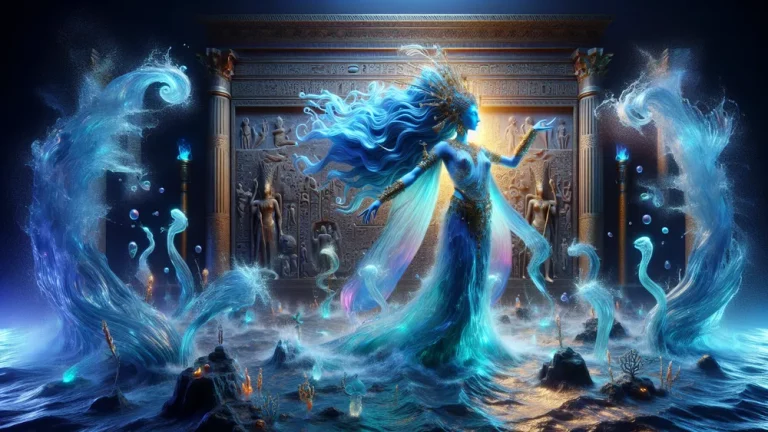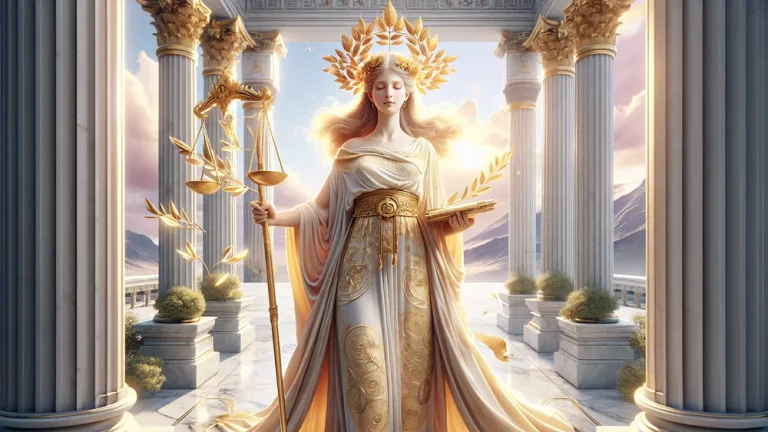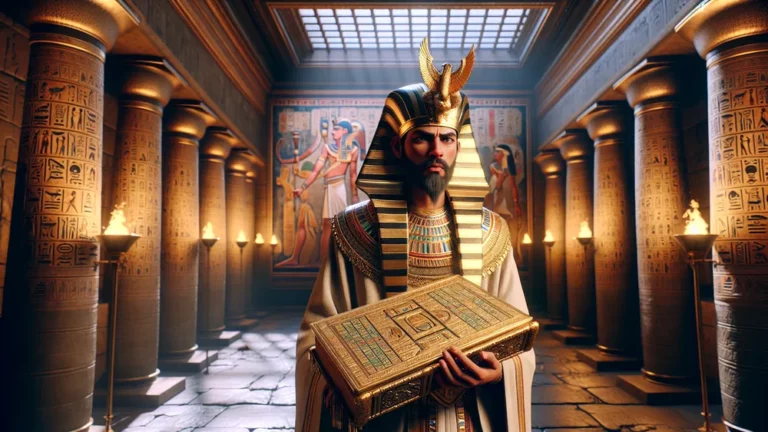Hector: Trojan Prince And Hero In Greek Mythology
When you think of heroes in Greek mythology, names like Achilles and Hercules might first come to mind. Yet, Hector, a Trojan prince, is somehow one of the more interesting and layered characters in these old tales. Imagine a leader who’s not just a brave fighter but also a dedicated family person. Much like today’s military generals who balance country duty with family love, Hector appears similar.
Key Points:
- Hector is a Trojan prince and hero in Greek mythology.
- He is the son of King Priam and Queen Hecabe of Troy.
- Hector is known for his bravery, leadership, and sense of duty.
- He played a key role in the Trojan War as the main fighter for Troy.
- His wife is Andromache, and they have a son named Astyanax.
- Hector’s rivalry with Achilles leads to his tragic death.
- His story reflects themes of honor, family, and the hero’s journey.
Hector’s story, which you can find in Homer’s Iliad, is a detailed story filled with bravery, honor, and tragic flaws. Through this post, we will journey to discover Hector’s origins, his pivotal role in the Trojan War, and the enduring legacy he left behind.
Even if you are new to mythology or are a seasoned enthusiast, Hector’s tale is one that means timeless themes of heroism and humanity.
Hector: Overview and Key Facts
| Key Point | Description |
|---|---|
| Full Name | Hector |
| Parentage | Son of King Priam and Queen Hecabe of Troy. They ruled strongly. |
| Role | Trojan prince and main fighter in the Trojan War |
| Spouse | Andromache. They lived in Troy. |
| Children | Astyanax, a young boy. |
| Famous Traits | Bravery, leadership, sense of duty, and honor |
| Major Rival | Achilles, a Greek warrior |
| Famous Duel | Fought and got killed by Achilles in front of Troy’s walls |
| Portrayal in the Iliad | He is seen as a noble but sad hero, having good and bad qualities |
| Legacy | Remembered as a symbol of bravery and sadness in Greek legends |
| Cultural Impact | It influenced later works and is seen in many interpretations, still a significant mythological character |
Hector: The Trojan Prince
For a good understanding of Hector’s importance in Greek stories, we need to look at where he started, what he did in the Trojan War, and his family that had a big impact on his life and what he chose.
Hector’s Family Background and Birth
Hector was born into the royal family of Troy, the oldest son of King Priam and Queen Hecabe. King Priam, a wise and respected ruler, ruled Troy fairly and responsibly, traits he clearly gave to his son. Queen Hecabe, who had strong motherly care and dreams about the future, played a big part in Hector’s upbringing.
Growing up in the royal palace, Hector would see the splendor and responsibilities of being a prince. He was a prince. Imagine a young prince today, trained from a young age to lead and protect his people, always watched by his parents and advisors. This environment filled Hector with a strong sense of duty and honor. These traits defined him.
From a young age, Hector learned war and leadership arts, which prepared him for defending Troy later. His early life had big events and influences that molded his character. For instance, constant threats from Greece taught him to be prepared and careful. Additionally, the values his parents taught – like loyalty to family and country – were deeply ingrained in him.
These early lessons and experiences shaped Hector into a warrior and leader who was not only brave but also very loyal to his people and city.
Hector, the eldest son of King Priam and Queen Hecabe of Troy, grew up in a royal environment that instilled in him a strong sense of duty, honor, and loyalty, shaping him into a brave warrior and leader.
What Hector Did in the Trojan War
Hector, a prince of Troy, had a big job and a lot of sway during the Trojan War. He was not only in the royal family but also the main warrior and leader of the Trojan army. Imagine a modern military leader who is both great at planning and fights alongside his troops.
Hector’s leadership mattered a lot to the defense of Troy because he inspired his soldiers with his bravery and steady loyalty. His planning skills appeared in several key battles. He managed to hold off the Greeks and kept the city from being taken.
One example is the defense of the Trojan gates where Hector’s plans and bravery helped turn the fight for the Trojans, at least for a while. Hector’s importance in the Trojan War was more than just his battle skills. He was a sign of hope and strength for the people of Troy, who saw him as someone with honor, duty, and sacrifice.
His presence on the battlefield boosted the morale of the Trojan fighters, who looked up to him as their leader and protector. Hector’s fights with key Greek leaders like Ajax and Achilles made his role as the main defender of Troy clear.
These were not just physical fights, but also mental ones, because Hector’s ability to face the strongest Greek fighters showed the strength and resolve of the Trojan defense. Through what he did and his leadership, Hector played a key role in the Trojan War, making him one of the most important figures in this epic conflict.
Hector’s Immediate Family
Hector’s immediate family was important in his life, shaping what he did and chose. His wife, Andromache, was a loyal partner who gave him emotional support and helped with challenges. They cared for each other. In Hector’s life, Andromache reminded him constantly of what he was fighting to protect. Their son, Astyanax, stood for the future of Troy and was a major reason for Hector’s fight.
The thought of keeping his son safe and ensuring his family’s future pushed Hector to fight with even more determination. The importance of his family is clear in several parts of the Iliad. For example, Hector’s moments with Andromache and Astyanax tell us about his deep sense of responsibility and love for them.
This family bond added personal stakes to Hector’s part in the Trojan War, which made his character even more relatable and tragic.

- Wife: Andromache
- Son: Astyanax
The Rivalry Between Hector and Achilles
The rivalry between Hector and Achilles is one of the key parts of the Trojan War, standing for the clash between two top fighters back then. Think of two top athletes, each at their best, facing off in a very important game. It was dramatic. This idea captures how intense and important their conflict was.
Their famous duel, which ended in Hector’s death, was not just a personal grudge but a key time in the war. Achilles wanted to get back at Hector for killing his friend Patroclus, so he looked for the Trojan prince for a last fight. This duel, which had big impacts, made the Trojans feel down and changed things for the Greeks.
In Greek mythology, this rivalry highlights ideas of honor, revenge, and the sad side of heroism, making it a main story that has lasted through the ages.

Hector’s Heroism and Virtues
After looking at Hector’s significant role in the Trojan War and his strong rivalry with Achilles, let’s now go into the traits that made him a hero and leader.
Hector’s Courage and Leadership
Hector’s courage during fights and his great leadership traits are clearly shown in Homer’s Iliad. Think of a firefighter running into a burning building to save lives. That’s like the bravery Hector showed leading the Trojan forces. For instance, even knowing the powerful Greek forces, he chose to stand and defend the city gates against their attack.
His planning skills were clear when he led the Trojan counterattacks, and they managed to push back the Greeks to their ships at one point. He inspired his troops, like a CEO guiding a company through tough times, keeping their spirits high. His speeches, full of encouragement and determination, displayed his natural leadership and strong commitment to defending Troy. These actions showed his heroism and tactical skills.
They were not just about personal bravery but were also a key part of the Trojan resistance.
Hector displayed remarkable bravery and leadership by defending Troy against the Greeks, inspiring his troops through strategic planning and motivating speeches.
Hector’s Sense of Responsibility and Honor
Hector’s steady sense of duty to Troy and his family reflected the values of honor and loyalty central to him. Think of a public servant who puts first the well-being of their community and family over personal gain; this idea shows Hector’s dedication. His responsibility to protect Troy was not just duty. It was a personal thing, motivated by his love for his family and people.
In the Iliad, Hector’s talks with his wife Andromache and his son Astyanax mean seeing a man torn between being a warrior and a family man. He decided to go back to the battlefield because he cared about honor and the values he stood for as a prince, even though he knew it was dangerous. He was loyal to his city and family.
You could see it in what he did, whether it was leading his troops or comforting Andromache with words of hope and courage. This deep sense of responsibility and honor made Hector not just a strong warrior but also a deeply respected leader and a tragic hero in Greek stories.
Hector’s Downfall: His Faults
Hector’s tragic flaws, like his pride and cockiness, were important in his fall. Picture a skilled athlete who, despite being talented, underestimates their opponent and makes big mistakes; this idea fits Hector’s problem. His pride often made him make brave but bad strategy decisions. For instance, he refused to retreat behind Troy’s walls because he wanted to prove his valor, which put him in unnecessary danger.
He was most cocky when he chose to fight Achilles alone, and that choice sealed his fate. He did not realize the limits of his own strength and how strong Achilles was, adding a sad layer to his heroism. These faults did not just contribute to his personal downfall but also showed the bigger themes of pride and the inevitable fall that often comes with it in Greek stories.
Hector in Homer’s Iliad
After we looked at Hector’s bravery, good qualities, and mistakes, we’ll now think about how he is seen in Homer’s Iliad.
How Hector is Shown in the Iliad
In Homer’s Iliad, Hector appears as a noble and sad hero, reflecting both the good and bad of being a great warrior. Think of a dedicated leader who faces huge challenges and still loses; this idea captures Hector’s problem. He often means heroism and tragedy together.
One key scene that means his honor is when he says goodbye to Andromache and Astyanax, showing his deep love for his family while accepting his job to protect Troy. In this moment, we see his roles as a loving family man and a dedicated fighter. Another important scene is when he fights Achilles, where Hector’s bravery and sense of honor are clear, even as he faces someone he knows he can’t beat.
Homer’s view of Hector is complex, seen as both impressive and tragically flawed. Through these important moments and actions, Hector means themes of honor, duty, and human weakness.
What Hector Left Behind in Greek Mythology
Hector’s lasting impact in Greek myths is deep, having an impact on many works and views. Think of a historical figure. Their life and actions still inspire people and shape stories long after their time; this idea captures the lasting mark of Hector’s story. In the Iliad, he is shown as a noble and sad hero, fixing his spot as a vital figure in mythological studies.
Hector’s sense of duty and honor, along with his mistakes, resonate with universal themes that many have explored in different literary and artistic works throughout history. His story has inspired not only ancient Greek tragedies but also modern versions and retellings, showing the timeless nature of his character.

Hector’s legacy is seen in how his story continues to be a topic of scholarly analysis and a source of inspiration for writers, artists, and thinkers. This lasting influence means the depth and complexity of his character, making Hector a key figure in the rich tapestry of Greek mythology.
Hector’s story remains important in Greek myths, inspiring countless works and discussions due to his noble yet tragic character.
Comparing Hector with Other Mythological Heroes
After we looked at Hector’s story and how he appears in the Iliad, now we will compare him with other mythological heroes so we can see his unique place in Greek mythology.
Hector vs. Achilles
When we look at Hector and Achilles, we see they stand for different parts of being a hero, the good and the bad of it. Think of them as two types of leaders: Hector, who is steady and dutiful, and Achilles, who is passionate and almost unbeatable. Hector is seen as a family man and fights mainly because he feels he must protect his city and loved ones, while Achilles is focused on personal fame and wants to be remembered forever.
Their good qualities differ too; Hector has a strong sense of duty and honor, but Achilles is known for his unmatched fighting skills and bravery. But, both have bad sides: Hector’s overconfidence and pride lead to his fall, while Achilles’ anger and rashness often make him lose focus. Here is a table. It highlights how they are alike and different:
| Aspect | Hector | Achilles |
|---|---|---|
| Heroism | Duty-bound defender of Troy | Seeker of personal glory |
| Good Qualities | Responsibility, honor, loyalty | Fighting skill, bravery |
| Bad Sides | Overconfidence, pride | Anger, rashness |
| Motivation | Protecting family and city | Getting eternal fame |
| Key Relationships | Andromache, Astyanax, Priam | Patroclus, Thetis, Agamemnon |
Furthermore, this comparison makes clear the unique things that make both Hector and Achilles important figures in Greek mythology.
Hector vs. Other Trojan Heroes
When we look at Hector and other Trojan heroes like Aeneas and Paris, we see that each played a special and important part in the Trojan War. Think of them as team players. Each had a role and strengths. The main defender of Troy was Hector.
He was a leader, brave, and felt he must protect his city. In contrast, Aeneas, a strong fighter too, is often seen as a religious hero who would survive the war and start a new Trojan state, a place which would later be linked to the beginnings of Rome. Paris, on the other hand, is best known for starting the war by taking Helen. He is seen as less brave in battle than Hector and Aeneas, but his actions were key to the Trojan War’s story. The following list highlights their unique contributions and characteristics:
- Hector: Leadership, bravery, primary defender of Troy.
- Aeneas: Religious, survival, starting a new Trojan state.
- Paris: Starter of the war, taker of Helen, less brave in battle.
Interestingly, this comparison means we see the various parts these Trojan heroes played, each adding something special to the story of the Trojan War.

Pantheon of Greek Mythological Heroes and Figures
The group of Greek myth heroes and figures is big and mixed, including many characters, all with their own personal stories and traits. Picture it as a list of famous athletes or historic people. Each adds something special to the wide history of Greek myths. The strong Hercules, the clever Odysseus, the sad Achilles, the noble Hector – these heroes have left a lasting mark on books, art, and culture.
For a detailed list of all the Greek Mythological Heroes and Figures, you can check the detailed entries. They jump into their fascinating stories and who they were.
FAQs
1. Who were Hector’s parents?
Hector’s parents were King Priam and Queen Hecabe of Troy.
2. What was Hector’s role in the Trojan War?
Hector’s role in the Trojan War was to lead the Trojans in battle as a prince and warrior.
3. How did Hector die?
Hector died when he was killed by Achilles in a duel outside the walls of Troy.
4. What is Hector’s legacy in Greek mythology?
Hector’s legacy in Greek mythology is that of a noble and tragic hero whose story has profoundly influenced later literary and cultural works.







